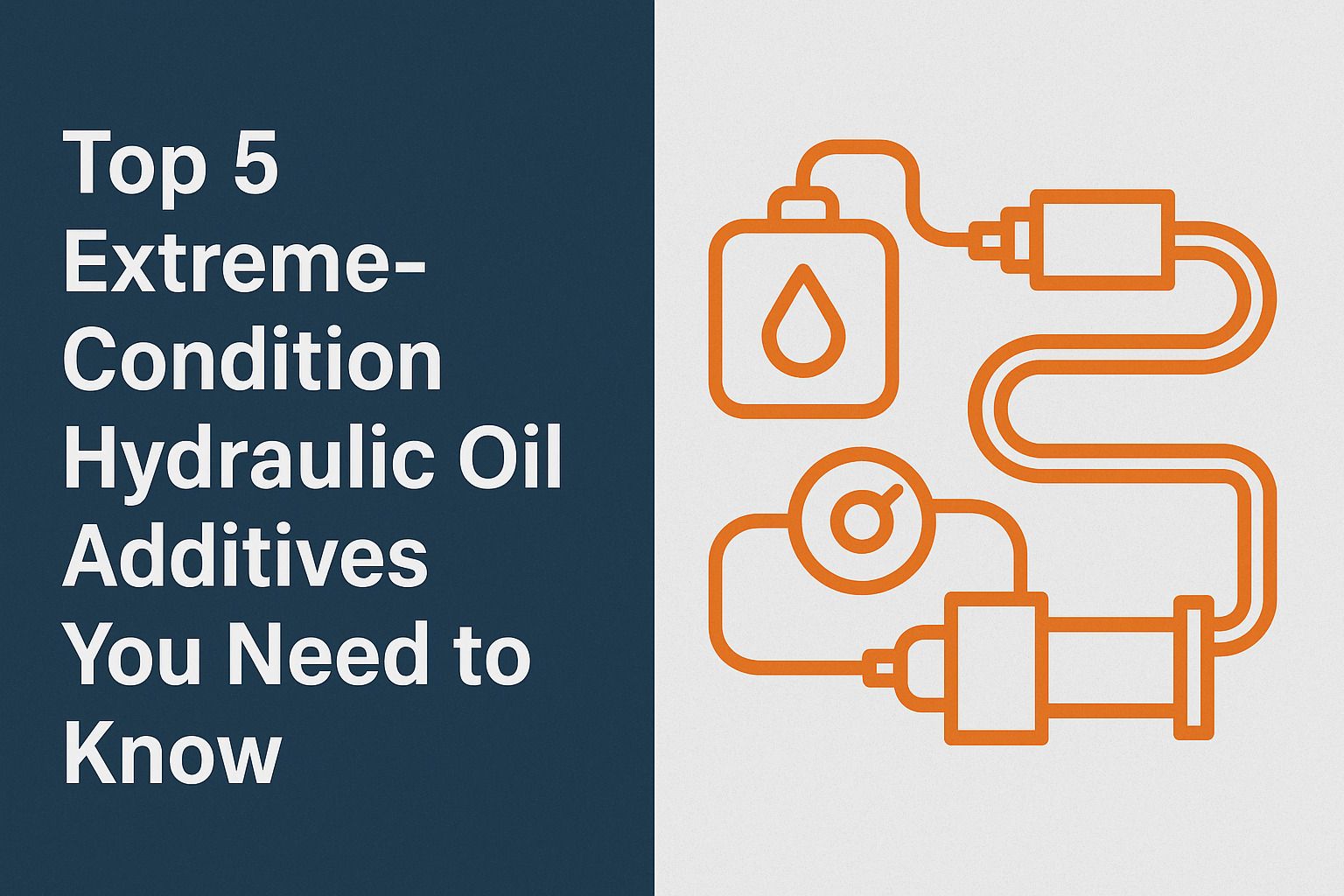In the high-pressure world of industrial machinery and heavy-duty equipment, hydraulic systems are often pushed to their limits. From searing temperatures to intense loads and environmental contaminants, these systems face extreme conditions daily. This is where hydraulic oil additives step in—specially engineered chemical compounds designed to enhance oil performance and protect components under harsh operating environments.
In this blog, we’ll explore what makes these additives essential and reveal the Top 5 hydraulic oil additives you should know about for extreme conditions.
What Are Hydraulic Oil Additives?
Hydraulic oil additives are performance-enhancing chemicals blended into base oils to improve their properties and extend equipment life. They address challenges like oxidation, wear, foam, water contamination, and viscosity breakdown—ensuring the hydraulic fluid maintains optimal performance, even in severe operating conditions.
How Extreme Conditions Affect Hydraulic Oils
Before diving into the additives, it’s important to understand how tough operating environments challenge hydraulic oils:
- High Temperatures: Cause oil oxidation, viscosity loss, and sludge formation.
- High Pressures: Increase metal-to-metal contact, causing wear and friction.
- Contaminants (Water, Dirt, Air): Lead to corrosion, foaming, and loss of lubricity.
Base oils alone cannot withstand these challenges, which is why advanced additives are crucial for maintaining system reliability and performance.
Top 5 Extreme-Condition Hydraulic Oil Additives You Need to Know
Here’s a look at the most important additives you should consider when operating under extreme conditions:
1️. Antiwear (AW) Additives
These additives form a protective film on metal surfaces, minimizing wear under high-pressure conditions. They reduce friction, lower operating temperatures, and extend component life. Common compounds include zinc dialkyldithiophosphate (ZDDP).
Ideal for: Construction equipment, mining machinery, and manufacturing plants with high-load hydraulics.
2️. Viscosity Index Improvers (VIIs)
Extreme temperature fluctuations can thin or thicken hydraulic oil. Viscosity index improvers maintain consistent oil thickness across a broad temperature range, ensuring smooth performance in both cold starts and high-heat operations.
Ideal for: Outdoor equipment, steel mills, and mobile hydraulic systems.
3️. Oxidation Inhibitors
High operating temperatures can cause hydraulic oils to oxidize, forming acids, varnish, and sludge. Oxidation inhibitors slow this degradation, preserving oil cleanliness and stability over extended service periods.
Ideal for: High-temperature industrial and mobile hydraulic systems.
4️. Demulsifiers
Water contamination is one of the biggest threats to hydraulic systems. Demulsifiers help separate water from oil, allowing it to be removed easily. This prevents rust, corrosion, and oil emulsification, maintaining fluid integrity.
Ideal for: Marine, offshore, and mining operations where water ingress is common.
5️. Antifoam Agents
Foaming can reduce oil lubricity and cause erratic system behavior. Antifoam additives disperse air bubbles and prevent foam formation, ensuring consistent hydraulic performance.
Ideal for: High-speed industrial systems and hydraulic circuits prone to air entrainment.
Conclusion: Choose Trusted Hydraulic Oil Additive Brands
Investing in the right hydraulic oil additives is critical for protecting your equipment, reducing downtime, and saving maintenance costs in extreme operating environments. Always source additives from reputable suppliers known for consistent, high-quality formulations.
One such trusted brand in the market is Top Polymers — offering a comprehensive range of advanced hydraulic oil additives, including viscosity improvers, antiwear agents, and oxidation inhibitors designed for tough, industrial applications. Their products are engineered to enhance fluid performance and equipment longevity, even under the harshest conditions.
